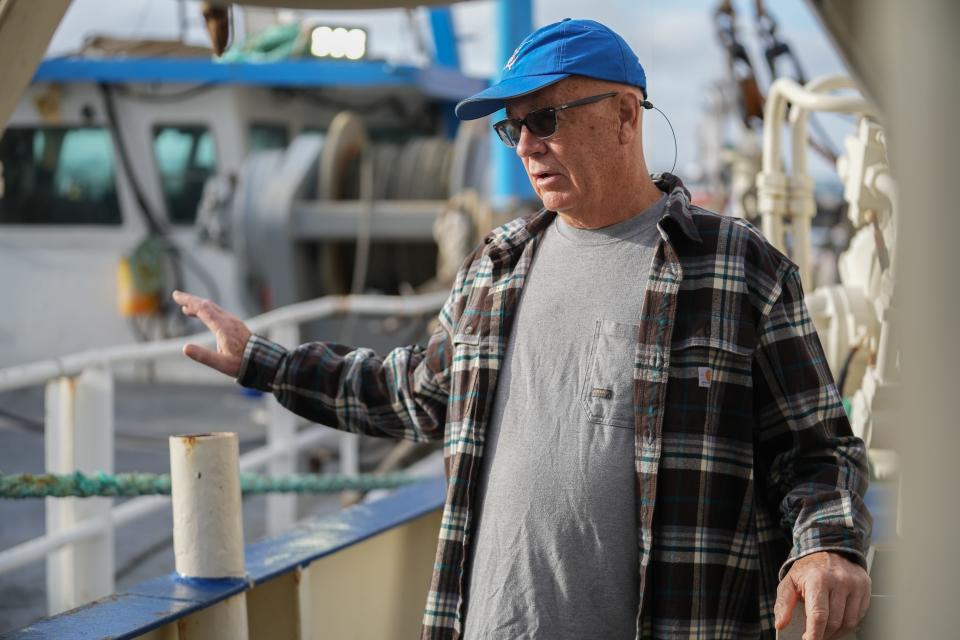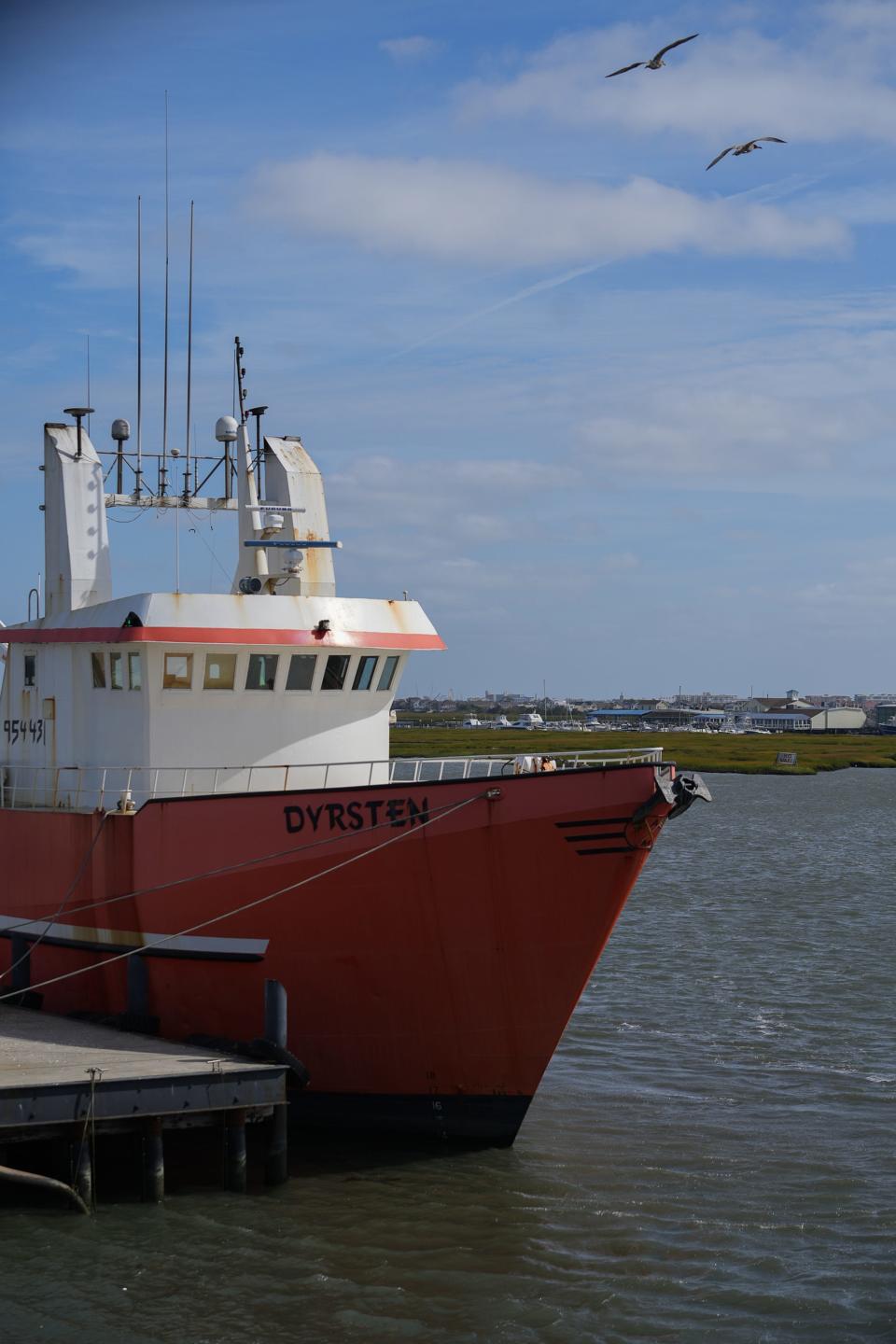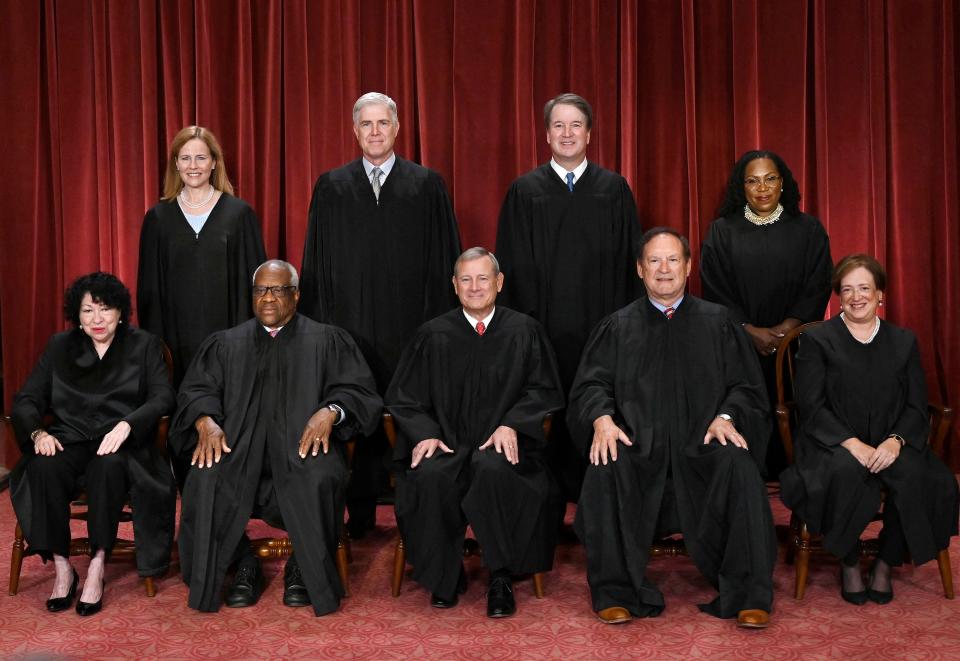Check on power of federal government or something else? Stakes high in SCOTUS fishing case
WASHINGTON ? The Supreme Court on Wednesday will take up two of the most closely watched cases of its current term, hearing arguments in a dispute that could limit the regulatory authority of the federal government.
Fishing companies are challenging a rule that required them to pay the salaries of the federal observers required on some boats to prevent overfishing.
But the larger issue is how much deference courts must give to government agencies when they approve regulations that aren’t specifically authorized in the law.
A decision in favor of the herring fishermen could undo a landmark 1984 ruling under which courts have deferred to agencies as long as their interpretation of a law is “reasonable.”
The Biden administration has warned of a “convulsive shock to the legal system” if deference to agencies is overturned.
Liberal groups fear it would lead to a flood of litigation challenging the government’s ability to protect the environment, ensure food and medicines are safe, health care is affordable, and workers are treated fairly.
Critics say the federal government wields too much power to approve regulations with little or no input from Congress. Curbing agency power has been a decades long project of the conservative legal movement.
Dig deeper: A group of herring fishermen may put a hook in the Biden administration's power

Revisiting Chevron v. Natural Resources Defense Council
Ironically, the 1984 decision being revisited by the court was created in a case that cut back on regulations – and it was applauded by conservatives at the time.
Chevron v. Natural Resources Defense Council stemmed from an unsuccessful challenge by environmental groups to how the Reagan administration was regulating pollution under clean air rules set by Congress.
The Supreme Court said judges must first decide if Congress’ directions were clear. If the law is ambiguous, then courts should give deference to the agency’s interpretation as long as it’s a reasonable interpretation of what Congress intended.
Federal courts have referred to the case tens of thousands of times, making it one of the most cited cases in history, according to the American Bar Association.
That decision has provided a stable background for judicial review of administrative actions for decades, the Biden administration has told the court.
“Federal agencies can draw on accumulated experience, expertise, and specialized knowledge that judges lack,” U.S. Solicitor General Elizabeth Prelogar said in a filing. “And federal agencies, unlike federal courts, are politically accountable to the American people through the president.”

Constitutional question
The challengers argue Chevron was incorrectly decided because the Constitution gave Congress the power to make the laws and gave courts the power to interpret laws as an independent check on the political branches.
“Even though the government does not always win under Chevron, the decision has fostered a legal culture in which agencies feel emboldened to stretch the bounds of their lawful authority – and then stretch even further,” attorneys for the fishermen said in a brief.

Underlying rule being challenged
In the two related cases before the court Wednesday ? Loper Bright Enterprises v. Raimondo and Relentless v. Department of Commerce ? fishing companies are challenging a 2020 federal rule that added $700 a day to their costs. They say the law that allows the National Marine Fisheries Service to require commercial fishing boats let federal agents collect data about the catch and ensure rules are followed doesn’t say anything specifically about charging the fishing industry for the observers.
Lower courts interpreted a 1976 law related to the National Marine Fisheries Service as permission to make companies pay for government observers. That law gave the agency the power to impose regulations that are ''necessary and appropriate'' to manage species.
In its briefs, the Biden administration has noted that the government stopped the program last year and reimbursed industry's at-sea monitoring costs.
How the lower courts ruled
Both the D.C. Circuit Court of Appeals and the Boston-based U.S. Court of Appeals for the First Circuit upheld the regulation, affirming lower court’s decisions.
Under the “well-established” framework from the Chevron decision, the government’s actions were reasonable, a divided D.C. Circuit Court of Appeals said in deciding Loper Bright Enterprises v. Raimondo.
Supreme Court Justice Ketanji Brown Jackson was on the appeals court at the time the case was argued there but she did not participate in that court’s decision.

Outside interests closely following the case
Dozens of outside associations and others filed supporting briefs, highlighting the significance of the case.
Business groups, conservative think tanks, Republican members of Congress and the attorneys general from 27 states are siding with the challengers.
“The court should intervene now to limit Chevron in a way that is consistent with the separation of powers and the principles of federalism,” West Virginia Attorney General Patrick Morrisey wrote in a brief filed on behalf of a group of Republican attorneys general. “Otherwise, it’s time to toss it.”
Those siding with the federal government include environmental groups, Democratic members of Congress, Democratic attorneys general from 21 states and the District of Columbia, and organizations advocating for public health, consumers and civil rights.
“Overruling Chevron would have enormous impact on the administration of federal programs – including Medicare, Medicaid, and CHIP – that are critical to public health,” public health groups argued in a brief led in part by the American Cancer Society.
Jonathan Masur, an expert on administrative law at the University of Chicago Law School, said a decision by the court to reduce agency flexibility could “mostly entrench the status quo.”
“It would block future pro-regulatory presidents from regulating further,” he said, “but it would also prevent future anti-regulatory presidents from deregulating the health and safety rules that currently exist.”
This article originally appeared on USA TODAY: Supreme Court fishing fee case could limit federal government power